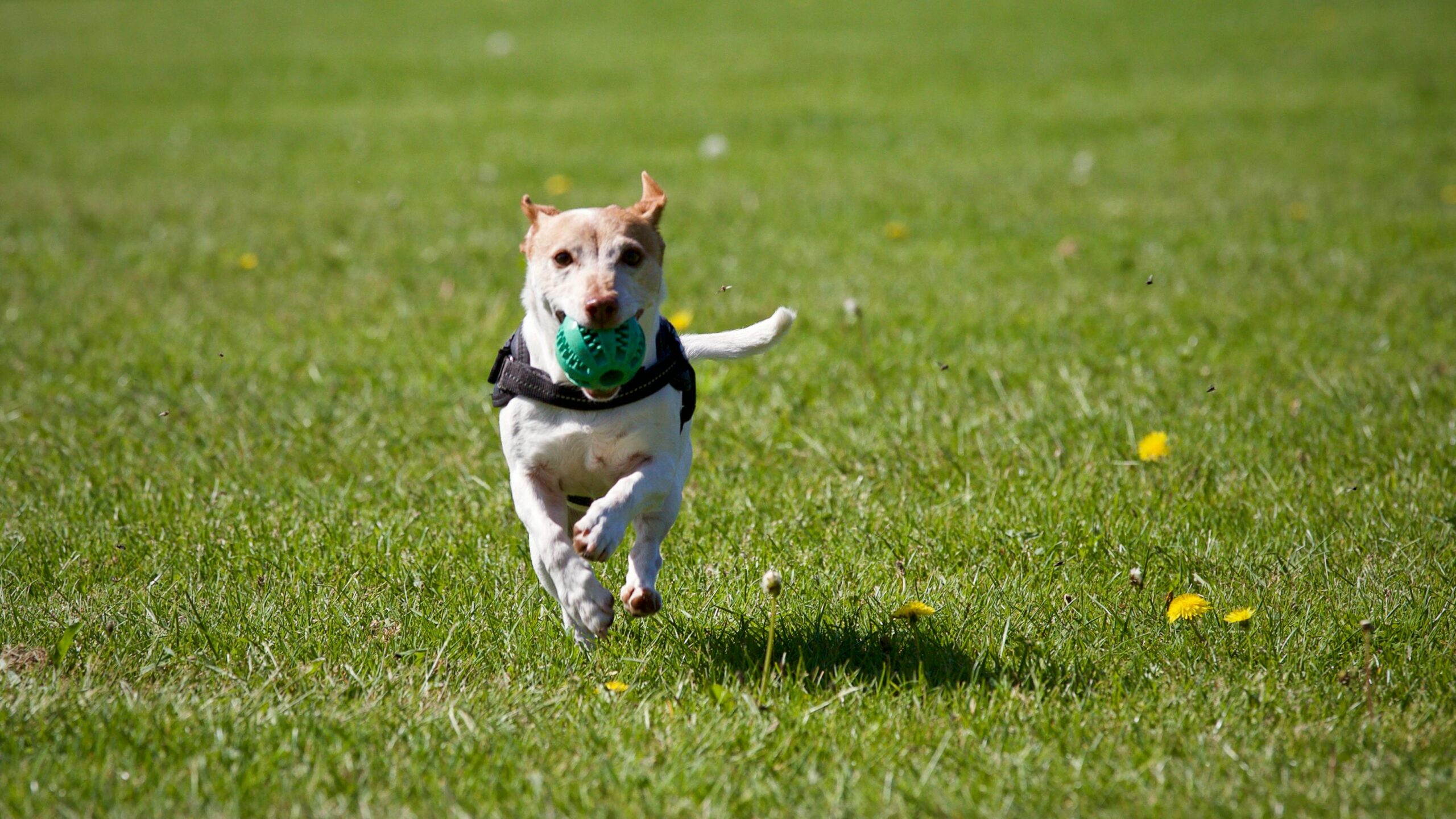Dogs love to play, and toys are more than just fun — they’re essential for your dog’s mental and physical health. Whether you live in a house or an apartment, the right toys can help reduce stress, fight boredom, and prevent destructive behavior. In this article, you’ll discover the best types of toys to entertain your dog indoors and how to use them to improve your dog’s daily life.
Why toys are so important for dogs
Play is a natural part of a dog’s life. Through play, dogs:
- Release excess energy
- Stay mentally stimulated
- Improve behavior and focus
- Build a stronger bond with their humans
- Avoid anxiety, depression, and boredom
Dogs that don’t play or lack stimulation may develop bad habits or emotional issues. Toys keep your dog happy, balanced, and well-behaved.
Types of toys and what they’re for
Each toy serves a different purpose, and variety is key. Rotate them weekly to keep your dog interested and engaged.
Chew toys
These satisfy your dog’s natural need to chew and help with dental health.
Examples:
- Nylon bones
- Rubber sticks
- Textured toys for teething
Benefits:
- Reduce stress
- Prevent furniture damage
- Relieve teething discomfort in puppies
Interactive and puzzle toys
Perfect for mental stimulation and solo play. They challenge your dog to think and solve problems.
Examples:
- Treat-dispensing toys (like Kong)
- Puzzle boards with hidden snacks
- Slow feeders
Benefits:
- Fight boredom
- Keep dogs entertained when alone
- Develop cognitive skills
Tug toys
Used for interactive play between you and your dog.
Examples:
- Rope toys
- Fabric knots
- Flexible rubber tug toys
Benefits:
- Strengthen your bond
- Work on obedience commands like “drop it”
- Provide fun physical activity
Fetch toys
Great for active dogs who love chasing and retrieving.
Examples:
- Soft balls
- Flying discs
- Plush squeaky toys
Benefits:
- Stimulate physical exercise
- Build coordination
- Improve obedience through fun
Scent and sniffing games
Dogs love to use their nose. Toys that involve scent are deeply satisfying.
Examples:
- Snuffle mats
- Hidden treat boxes
- Homemade scent trails
Benefits:
- Reduce anxiety
- Challenge the brain
- Provide indoor enrichment
How to choose the right toy
Consider your dog’s size, age, energy level, and personality. Always check toy safety:
- No small parts that can break off
- Durable materials
- Appropriate size to avoid choking
A stimulated dog is a happier dog
Playing with the right toys prevents frustration and bad behavior. Even if you live in a small space, a well-stimulated dog will be calm, focused, and emotionally balanced. And best of all? You’ll enjoy an even stronger connection with your furry companion.
Dogs love to play, and toys are more than just fun — they’re essential for your dog’s mental and physical health. Whether you live in a house or an apartment, the right toys can help reduce stress, fight boredom, and prevent destructive behavior. In this article, you’ll discover the best types of toys to entertain your dog indoors and how to use them to improve your dog’s daily life.
Why toys are so important for dogs
Play is a natural part of a dog’s life. Through play, dogs:
- Release excess energy
- Stay mentally stimulated
- Improve behavior and focus
- Build a stronger bond with their humans
- Avoid anxiety, depression, and boredom
Dogs that don’t play or lack stimulation may develop bad habits or emotional issues. Toys keep your dog happy, balanced, and well-behaved.
Types of toys and what they’re for
Each toy serves a different purpose, and variety is key. Rotate them weekly to keep your dog interested and engaged.
Chew toys
These satisfy your dog’s natural need to chew and help with dental health.
Examples:
- Nylon bones
- Rubber sticks
- Textured toys for teething
Benefits:
- Reduce stress
- Prevent furniture damage
- Relieve teething discomfort in puppies
Interactive and puzzle toys
Perfect for mental stimulation and solo play. They challenge your dog to think and solve problems.
Examples:
- Treat-dispensing toys (like Kong)
- Puzzle boards with hidden snacks
- Slow feeders
Benefits:
- Fight boredom
- Keep dogs entertained when alone
- Develop cognitive skills
Tug toys
Used for interactive play between you and your dog.
Examples:
- Rope toys
- Fabric knots
- Flexible rubber tug toys
Benefits:
- Strengthen your bond
- Work on obedience commands like “drop it”
- Provide fun physical activity
Fetch toys
Great for active dogs who love chasing and retrieving.
Examples:
- Soft balls
- Flying discs
- Plush squeaky toys
Benefits:
- Stimulate physical exercise
- Build coordination
- Improve obedience through fun
Scent and sniffing games
Dogs love to use their nose. Toys that involve scent are deeply satisfying.
Examples:
- Snuffle mats
- Hidden treat boxes
- Homemade scent trails
Benefits:
- Reduce anxiety
- Challenge the brain
- Provide indoor enrichment
How to choose the right toy
Consider your dog’s size, age, energy level, and personality. Always check toy safety:
- No small parts that can break off
- Durable materials
- Appropriate size to avoid choking
A stimulated dog is a happier dog
Playing with the right toys prevents frustration and bad behavior. Even if you live in a small space, a well-stimulated dog will be calm, focused, and emotionally balanced. And best of all? You’ll enjoy an even stronger connection with your furry companion.

